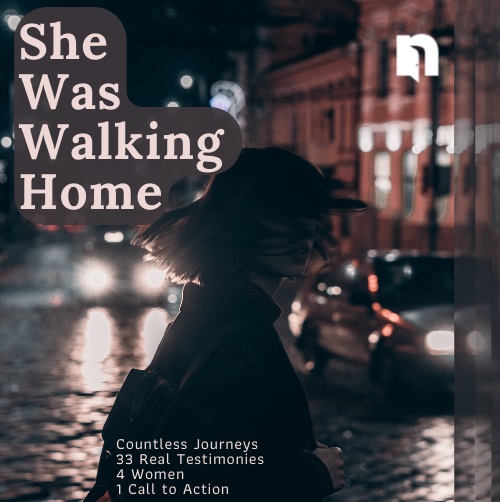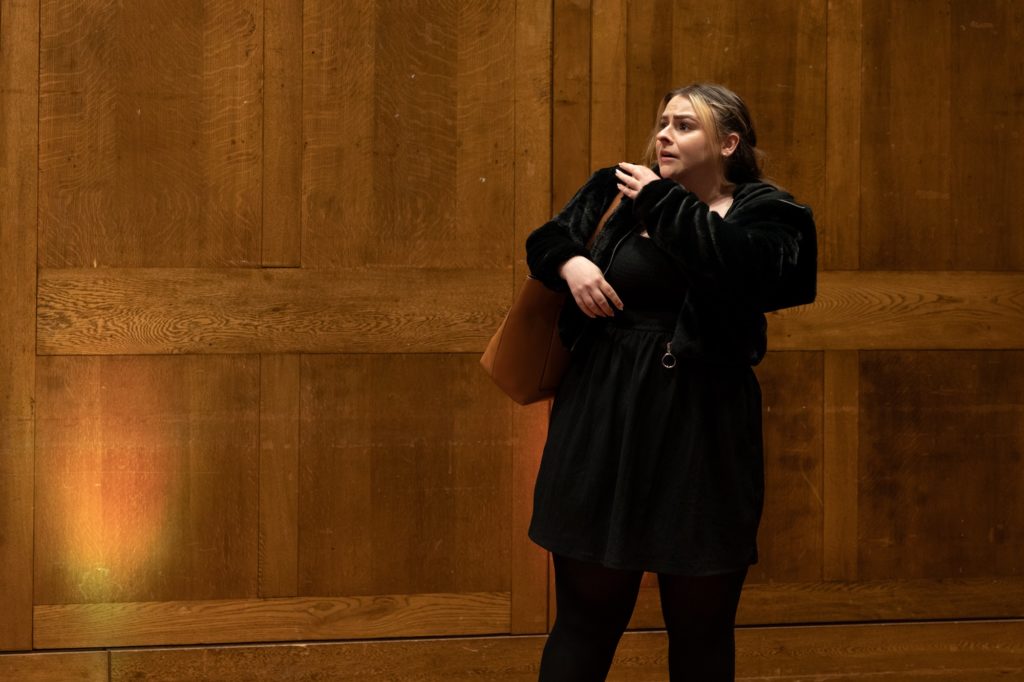
YORK community arts collective Next Door But One’s autumn tour has visited schools, colleges and the Theatre Royal already.
Next comes the university leg: a sold-out 7.45pm performance tomorrow at the University of York, followed by a 7.30pm finale at York St John University on October 25. Fewer than 20 tickets remain on sale at nextdoorbutone.co.uk. Hurry, hurry, book now.
Rachel Price’s testimonial theatre work was first presented as a walking audio tour around York city centre in 2021, then on tour last year, when suggestions that it should visit schools and colleges prompted this autumn’s itinerary.
This season’s performances follow the publication of the National Police Chiefs’ Council’s report, revealing that more than half a million offences against women and girls were recorded in England and Wales between October 1 2021 and March 31 2022 and that violence against women and girls accounts for at least 15.8 per cent of all recorded crime.
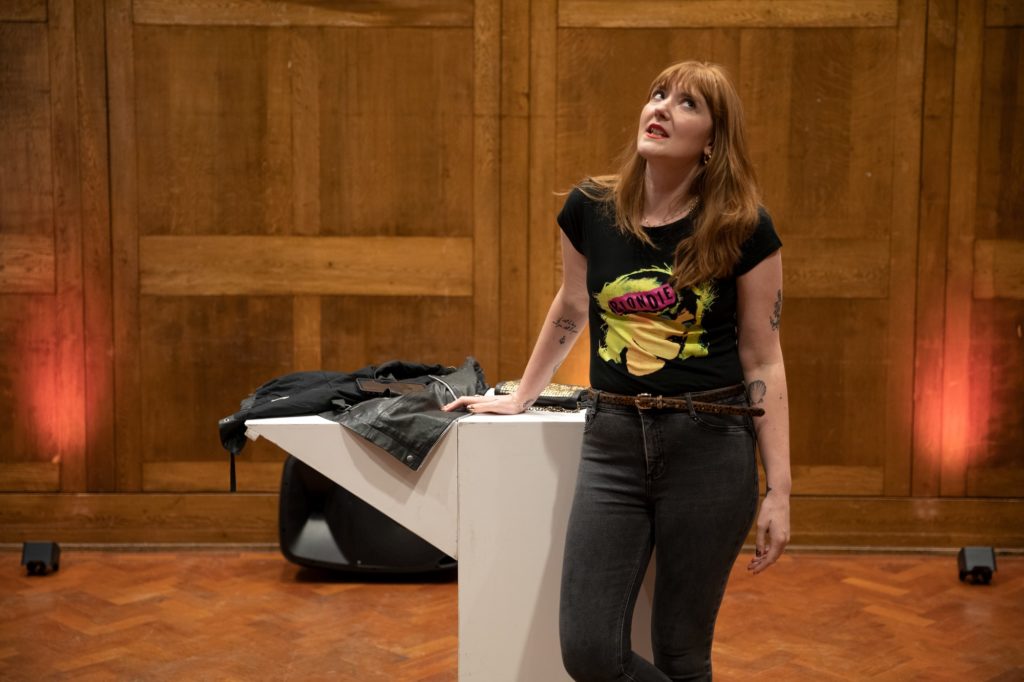
Next Door But One’s website carries the strapline Where Every Story Matters. In this instance, 33 stories from women of different ages living, working and studying in York. “Stories of fear, harassment, suspicion, disappointment, anger, but above all hope…to make sure the right voices are still being heard,” as NDB1’s tour flyer puts it.
From those countless journeys and real-life testimonies, Price has created a series of four monologues, told with the minimum of theatrical tools. Stark lighting; a couple chairs and a white box that can be folded in different way to serve as a seat, a table, a lectern. Sound effects too. That’s all that’s needed. Less is more.
The focus is on the words, always theatre’s greatest asset, and in turn on how they are delivered by Kate Veysey’s cast of Fiona Baistow, Anna Johnston, Mandy Newby and Ceridwen Smith, deputising for one night at York Theatre Royal Studio for Emma Liversidge-Smith, who will return for the university performances.
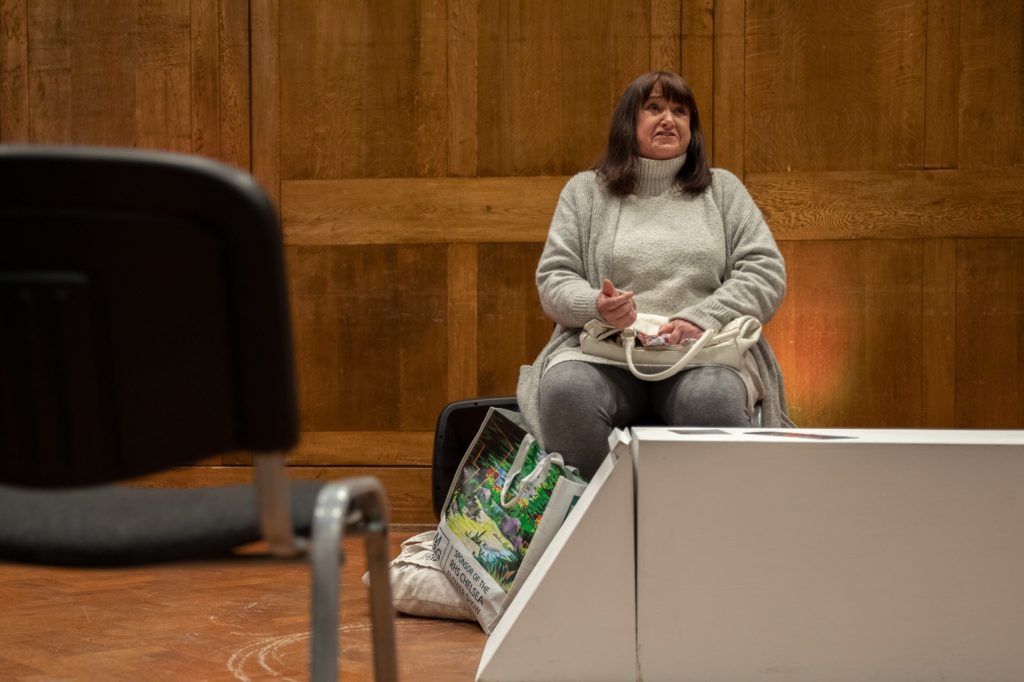
In the wake of statistics highlighting that one in two women feels unsafe walking alone after dark in a quiet street near their home or in a busy public place, She Was Walking Home asks How Do We Keep Women Safe? Note the emphasis on “We”. All of us.
The post-show question-and-answer session revealed that one school had been averse to hosting the play for fear of boys feeling picked on. That school changed its mind and the show’s impact was such that the next lesson was immediately scrapped and replaced with discussions on the issues raised.
At one performance, some boys had laughed initially, even stamped their feet to mimic the footsteps of an approaching man, but that response was born out of a feeling of awkwardness, one that changed as the performance progressed and they realised the need to wise up to women’s experiences and how boys, as much as men, need to be “part of the change” that NDB1 is urging.
Baistow’s Millie is a girl, finishing a work shift, who misses her bus home and decides to risk walking down “Rape Lane”, the quickest route. Why does she do it, you ask? Put yourself in her shoes and ask again. By her harrowing journey’s end, it takes an act of kindness to help her out. What stops such acts being commonplace?
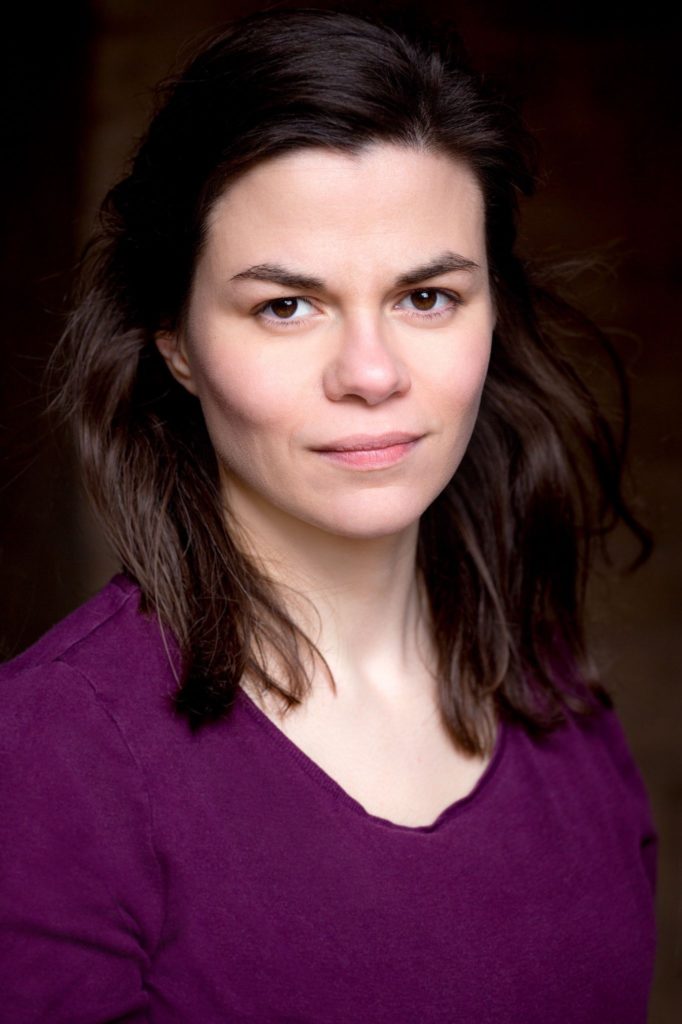
Jonhnston’s Cate is a student on a night out, quick to leave after an unwanted chat-up, only to be followed by a creep who’s been doing that for a while. The police stop her, to tell her she is being followed. You might well be asking why didn’t they stop him instead? Everyone was asking that afterwards. As ever, the implication is that she is the one to blame. How she dresses. Her manner. Not the men, the pest and the predator. When will that change?
Mandy Newby’s Jackie is older, a mother, who finds herself being picked on and molested by a group of young lads on bicycles. She can’t face telling her daughter, such is her feeling of humiliation.
Urged by a friend, who subsequently sits beside her in the interview room, she goes to the police station; they give her the standard leaflets. Here’s where the work of the Kyra Women’s Project, the York charity that helps women to make positive change in their lives, is so important.
Smith’s Joanne is a lawyer, giving a talk on her experience of being sexually assaulted by two men working in tandem. Her recovery has been gradual, but now she has “joined the conversation”, encouraging women to seek the services of the likes of IDAS (Independent Domestic Abuse Services).
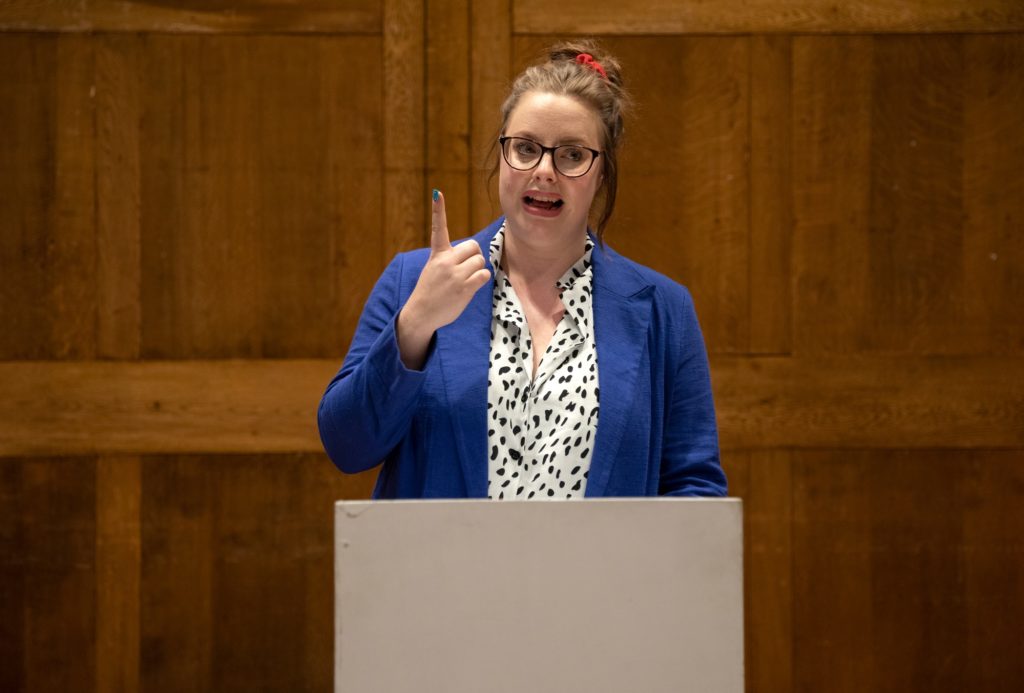
Four shocking cautionary tales, told verbatim from York’s streets as theatre verité; not so much acting as matter of facting. What followed was the best reason for a Q&A: the instant need to be “part of the conversation”, men and women alike.
To quote the flyer once more: “The conversation continues. And the loudest voices call for self-defence classes, rape alarms, trackers and a dress code. The conversation needs to change. The voices of women need to be at the centre, but the responsibility and accountability lies elsewhere.”
That makes She Was Walking Home as important for men to experience as women sharing stories and seeking advice and support. Crossing the road at night, to avoid following a woman, would be a step in the right direction for a start.
